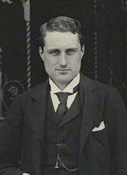Sir Charles Philips Trevelyan, 3rd Baronet
|
The Right Honourable Sir Charles Trevelyan Bt |
|
|---|---|
 |
|
| President of the Board of Education | |
|
In office 7 June 1929 – 2 March 1931 |
|
| Prime Minister | Ramsay MacDonald |
| Preceded by | Lord Eustace Percy |
| Succeeded by | Hastings Lees-Smith |
|
In office 22 January 1924 – 3 November 1924 |
|
| Prime Minister | Ramsay MacDonald |
| Preceded by | Hon. E. F. L. Wood |
| Succeeded by | Lord Eustace Percy |
| Parliamentary Secretary to the Board of Education | |
|
In office 19 October 1908 – 10 August 1914 |
|
| Prime Minister | H. H. Asquith |
| Preceded by | Thomas McKinnon Wood |
| Succeeded by | Christopher Addison |
| Member of Parliament for Newcastle Central |
|
|
In office 15 November 1922 – 27 October 1931 |
|
| Preceded by | George Renwick |
| Succeeded by | Arthur Denville |
| Member of Parliament for Elland |
|
|
In office 8 March 1899 – 14 December 1918 |
|
| Preceded by | Thomas Wayman |
| Succeeded by | George Taylor Ramsden |
| Personal details | |
| Born | 28 October 1870 |
| Died | 24 January 1958 (aged 87) |
| Nationality | British |
| Political party |
Liberal Labour |
| Spouse(s) | Mary Bell |
Sir Charles Philips Trevelyan, 3rd Baronet, PC (28 October 1870 – 24 January 1958) was a British Liberal Party, and later Labour Party, politician and landowner. He served as President of the Board of Education in 1924 and between 1929 and 1931 in the first two Labour administrations of Ramsay MacDonald.
Born into a liberal aristocratic family (see Trevelyan baronets of Nettlecombe, 1662), Charles was the eldest son of Sir George Trevelyan, 2nd Baronet, and his wife Caroline, daughter of Robert Needham Philips MP. He was the grandson of Sir Charles Trevelyan, 1st Baronet, the elder brother of R. C. Trevelyan and G. M. Trevelyan and the great-nephew of Lord Macaulay. He was the great-great grandson of Sir John Trevelyan, 4th Baronet (1735–1828). Family legend traced their ancestry to Sir Trevillian, one of King Arthur's knights, who swam ashore on horseback when Lyonesse sank. The family kept three houses year round: Wallington Hall, which the family had owned since 1777, Welcombe House, and a town house in Westminster. The family estates comprised more than 11,000 acres.
After Harrow and Trinity College, Cambridge, Charles Philips decided upon a political career. Beatrice Webb, his friend, described him as "a man who has every endowment - social position, wealth, intelligence, an independent outlook, good looks, good manners".
...
Wikipedia
